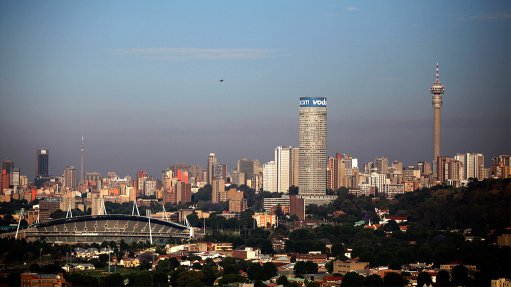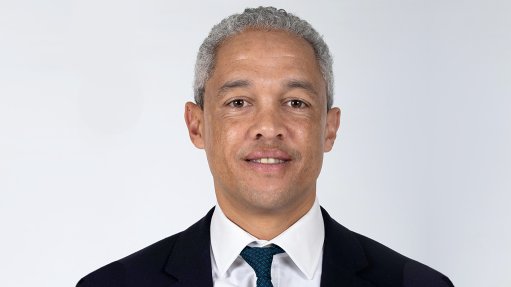Citizens can help find solutions to South Africa’s deteriorating water quality
Citizen science, where the public collects and analyses scientific data, can contribute to monitoring and testing of water quality in South Africa, delegates at the third yearly IIE MSA Water Symposium heard recently.
The two-day event, themed ‘Citizen Science – Uniting Science and Society for Sustainable Solutions’, was hosted in Johannesburg by the IIE MSA’s Centre for Water and the Environment in partnership with the Ecological Engineering Institute of Africa.
“What we really need to do is capacitate people so that they are able to overcome issues. So not only do we want to encourage people to be involved but we want to and need to capacitate them to take action and to be change agents. Citizen science provides us with a very powerful tool, to do just that,” IIE MSA environmental science head Linda Downsborough said at the symposium, where the importance of access and availability of safe and clean water was highlighted by various speakers.
While taps periodically run dry in some parts of South Africa owing to water supply disruptions caused by droughts, population growth, rapid urbanisation and underinvestment in infrastructure, the quality of tap water, especially in larger metropolitan areas, is, for the most part, considered healthy and drinkable.
However, the quality of water in rivers, streams and beaches has deteriorated owing to pollution, with WaterCAN executive manager Dr Ferrial Adam highlighting that more than 50 000 litres of sewage flows into the country’s rivers every second.
University of KwaZulu-Natal research associate Dr Jim Taylor, delivering a keynote address, also noted that owing to pollution, there is no river today that has safe water to drink when it enters the sea.
This pollution can have numerous consequences, the speakers warned, highlighting that South Africa has first-hand experience of the dangers of poor water quality after a cholera outbreak last year led to about 30 deaths in Hammanskraal in Pretoria.
The waterborne disease was caused by the failure of the Rooiwal wastewater treatment works, operated by the City of Tshwane, to meet the desirable final effluent quality for discharge to the Apies river.
“The health hazards posed by unsafe water make it an imperative to test our water consistently. However, with an extensive river and stream network that extends about 160 000 km, ensuring effective monitoring systems are in place is difficult.”
This is where citizen science can come in, United Nations International Children's Emergency Fund’s Dr Khumbuzile Zuma highlighted during a keynote address.
“Citizen science tools are simple, practical and scientifically proven and knowledge is generated from the ground up.”
Taylor also highlighted South Africa’s role in the citizen science movement, especially in regard to meeting the requirements of the Sustainable Development Goals (SDGs), especially that of SDG 6.
“South Africa has taken the lead in developing water quality monitoring tools like Clarity Tube and MiniSASS, which are inexpensive and easy to use. In fact the United Nations report on progress on ambient water quality highlighted miniSASS as having global potential,” he explained, adding that these tools were instrumental in bringing about change in Mphophomeni township near Midmar dam, in KwaZulu-Natal.
Communities recognise the importance of working with professional scientists and researchers to monitor and test water quality.
In 2022, WaterCAN worked with 77 community volunteers who conducted 100 tests. This number grew more than ten-fold with the number of volunteers increasing to 866 in 2023, resulting in 1 500 tests being carried out.
The South African National Biodiversity Institute (Sanbi) in partnership with Nature Speaks and Responds NPC, is also currently working with traditional health practitioners on citizen science aquatic monitoring and a Water Research Commission-funded Citizen Science State of the Rivers Reporting project is also underway.
Owing to the deterioration of water quality, organisations such as WaterCAN and many others are being galvanised into action to collaborate with communities to monitor and test the quality of water across the country.
The Citizen Science Association of Southern Africa is being developed, and is cochaired by Sanbi’s Dr Pearl Gola and the Department of Water and Sanitation’s Noloyiso Mbiza.
“There really seem to be a lot of things going on in the citizen science space, both locally, nationally and globally, and the interest in the IIE MSA Water Symposium is a signal of this – and one of the things we really wanted to do was to provide a platform to bring people together to talk about citizen science,” said Downsborough.
The Centre for Water and the Environment at IIE MSA also partnered with ADvTECH’s Environmental Social Governance unit and ran a competition for primary and high school students around the country and Africa.
“We were taken aback by the calibre of entries we received. It highlighted just how important citizen science is,” she said.
“We need to democratise science and bring water and the environment into our classrooms.”
Article Enquiry
Email Article
Save Article
Feedback
To advertise email advertising@creamermedia.co.za or click here
Press Office
Announcements
What's On
Subscribe to improve your user experience...
Option 1 (equivalent of R125 a month):
Receive a weekly copy of Creamer Media's Engineering News & Mining Weekly magazine
(print copy for those in South Africa and e-magazine for those outside of South Africa)
Receive daily email newsletters
Access to full search results
Access archive of magazine back copies
Access to Projects in Progress
Access to ONE Research Report of your choice in PDF format
Option 2 (equivalent of R375 a month):
All benefits from Option 1
PLUS
Access to Creamer Media's Research Channel Africa for ALL Research Reports, in PDF format, on various industrial and mining sectors
including Electricity; Water; Energy Transition; Hydrogen; Roads, Rail and Ports; Coal; Gold; Platinum; Battery Metals; etc.
Already a subscriber?
Forgotten your password?
Receive weekly copy of Creamer Media's Engineering News & Mining Weekly magazine (print copy for those in South Africa and e-magazine for those outside of South Africa)
➕
Recieve daily email newsletters
➕
Access to full search results
➕
Access archive of magazine back copies
➕
Access to Projects in Progress
➕
Access to ONE Research Report of your choice in PDF format
RESEARCH CHANNEL AFRICA
R4500 (equivalent of R375 a month)
SUBSCRIBEAll benefits from Option 1
➕
Access to Creamer Media's Research Channel Africa for ALL Research Reports on various industrial and mining sectors, in PDF format, including on:
Electricity
➕
Water
➕
Energy Transition
➕
Hydrogen
➕
Roads, Rail and Ports
➕
Coal
➕
Gold
➕
Platinum
➕
Battery Metals
➕
etc.
Receive all benefits from Option 1 or Option 2 delivered to numerous people at your company
➕
Multiple User names and Passwords for simultaneous log-ins
➕
Intranet integration access to all in your organisation

















